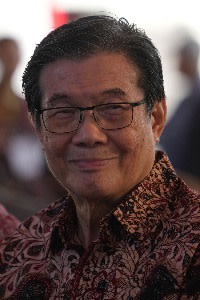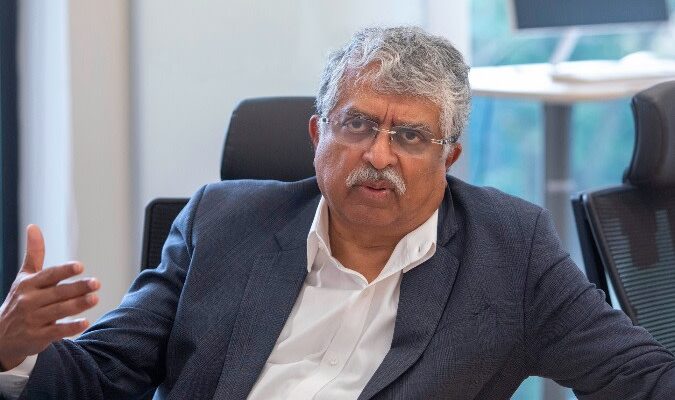Indonesia’s richest tycoons are lining up to buy so-called patriot bonds despite below-market yields, in a show of support for President Prabowo Subianto.
People familiar with the matter said four leading tycoons — who have a combined wealth of $114.5bn, according to estimates by Forbes magazine — had committed to buying the bonds to be issued by sovereign fund Danantara.
Danantara, which controls Indonesia’s state-owned businesses and has assets worth more than $900bn, plans to raise about Rp50tn ($3bn) by selling the bonds, primarily to fund waste-to-energy projects, according to three people familiar with the matter.
The bonds, which are being offered through a private placement, will have maturities of five and seven years, both offering a 2 per cent interest rate. That is well below the 5.5 per cent current yield on five-year Indonesian government bonds and the 6.3 per cent on 10-year sovereign debt.
Tycoons were purchasing Danantara’s bonds despite the lower yields “to show support and loyalty to the president”, said one person advising Indonesian conglomerates.
The three people familiar with the matter said Prajogo Pangestu, Robert Budi Hartono, Anthoni Salim and Franky Oesman Widjaja — whose interests span mining, plantations, energy, food, retail and the auto industries — had committed to buying patriot bonds.
The tycoons account, individually or with family members, for four of the five top entries on Forbes’ Indonesia rich list last year. Prajogo is Indonesia’s richest person with wealth of $40.7bn at current valuations, according to Forbes.
Dozens of other tycoons have also expressed interest in the patriot bonds, the people said. One said purchases have been capped at Rp3tn each.

Franky, whose Sinar Mas conglomerate is one of Indonesia’s largest, with interests in palm oil, pulp and paper and property, confirmed his decision to buy patriot bonds.
“This instrument provides investment certainty while accelerating inclusive growth for the people,” Franky told the Financial Times. The bonds also strengthened collaboration between the government and the business world, he added.
The other three tycoons did not respond to requests for comment. A spokesperson for Robert Budi confirmed the billionaire’s decision to purchase patriot bonds to local media.
Indonesia’s tycoons own some of the largest businesses in the country, but tend to keep a low profile. The companies they control form the backbone of Indonesia’s stock market.
One person familiar with the matter said some tycoons saw the patriot bonds as “insurance policy” against any potential action towards their companies from the government.
Offering the bonds exclusively to tycoons has sparked speculation that the business magnates are being forced to contribute to Prabowo’s initiatives.
Danantara has dismissed such claims, saying the offering was being structured as a private placement “with participation strictly voluntary”.
“The fundamental principles of the patriot bonds is voluntary participation and shared responsibility,” it said in a statement this week.
“It offers Indonesian business groups the opportunity to contribute to a multigenerational development agenda, while ensuring sustainability and long-term societal welfare,” the fund added. It declined to disclose the identities of potential buyers and other details.
In a previous statement, Danantara defended the bonds’ below-market rates.
“With the patriot bonds, our business leaders trade short-term gains for a lasting legacy: building our nation. Doing so creates long-term value not just for shareholders, but all stakeholders — society at large, and the country they call home,” it said in August.
Prajogo’s Barito Renewables Energy, which runs geothermal and other projects, is Indonesia’s most valuable public company, worth about $65bn. His Barito Group started off as a timber company in 1979, but has since expanded to petrochemicals, coal mining and renewables.
Budi’s Djarum Group is a vast conglomerate that includes one of the country’s top cigarette manufacturers and the largest private bank, BCA.
Anthoni Salim’s Salim Group has interests ranging from coal mining to Indomaret, the country’s largest convenience store chain, and Indofood, one of the world’s largest instant noodle makers.
Prabowo has previously asked the business community to help with national development.
In March, the president held a two-day meeting with tycoons including Prajogo and Anthoni. Danantara was among the topics discussed, according to the presidential palace.
Danantara, which was launched in February, is one of Prabowo’s biggest endeavours since his inauguration last October.
Ownership of all Indonesian state-owned enterprises has been moved from the SOE ministry to Danantara. Dividends from the SOEs, which have traditionally gone to government coffers, have been directed to the fund.
That shift has raised concerns over governance, transparency and the risk of political interference.
Danantara has also invested $405mn in airline Garuda Indonesia, and signed a memorandum of understanding with French miner Eramet to explore investment opportunities in nickel, a vital ingredient for EV batteries.


